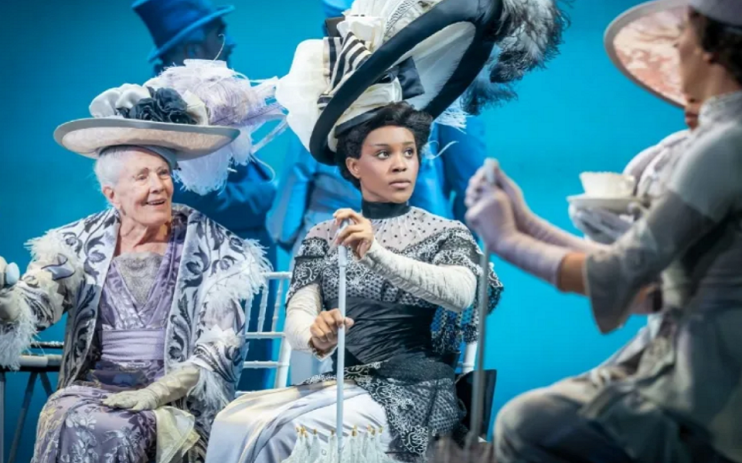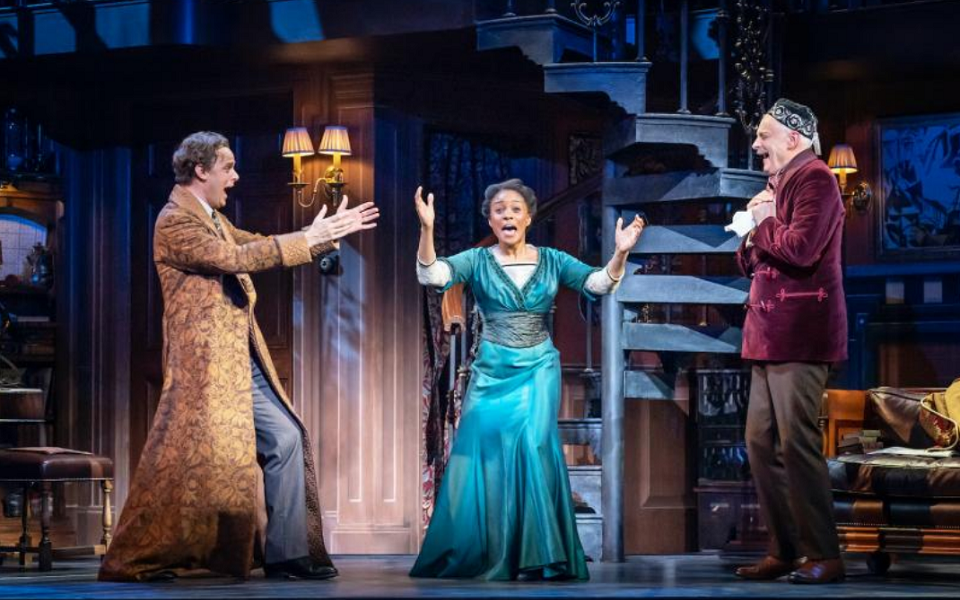My Fair Lady review: Polished production lacks energy

“Wouldn’t it be loverly,” Eliza Doolittle wonders in My Fair Lady, dreaming of a life of chocolate, heat and warm feet. Let me put it to Eliza: wouldn’t it also be ‘loverly’ if more musicals had the audacity to radically rethink their tired misogynistic plots like this version of My Fair Lady does?
Musicals have long been criticised for being bastions of an old way of thinking. Women are often made the butts of the jokes – sometimes literally, when they’re slapped – and it’s commonly brushed under the carpet. ‘Oh come on, it’s a musical!’ people thinly argue.
But in theatreland, bloggers, producers and writers have been trying to change things for a while, and newness is afoot. A fresh production of Oklahoma! at the Young Vic has Marisha Wallace as Ado Annie flirting with women as well as men in a radically sexualised update, and now in Bartlett Sher’s version of Lerner and Loewe’s classic musical My Fair Lady, first debuted in New York in 2018, mouths drop when Doolittle does more than a little for herself rather than bow to Henry Higgins, the classist snob at the centre of the plot who uses Eliza and her wish to speak ‘proper’ for the benefit of his social experiments.

No spoilers here, but it is delightful to see My Fair Lady make a point on behalf of a modern audience, for whom gently laughing and clapping along with misogyny is fast becoming an activity that not only feels uncomfortable but won’t be stomached.
Sher’s ending isn’t perfect. It somewhat makes the musical fall off a cliff, and for such a big statement, the idea could have been given longer to be executed, but thank goodness it happened anyway.
It could be a bellwether for the production as a whole: the musical numbers don’t quite have the energy to lure the audience into singing along, but overall, it’s joyous, with towering sets to get lost in which gallop from the infamous horsey scene at Ascot through Doolitte’s infatuation with speaking like a member of the upper class, to her despair at the idea of that culture.
There are gorgeous turns in set design by Michael Yeargan, particularly the silhouetting of top hats and tails against a charcoal backwash which brightens to brilliant blue at Ascot, and the evening hues of the Higgins doorstep as young suitor Freddie, in a charming turn by Sherif Afifi, attempts to steal Doolittle from egomaniac and elocution teacher Higgins. Here we truly feel like we’re in romantic, Disneyfied London at the start of the 20th century.
At the risk of sounding obvious, more musicals should adapt their problematic endings. Sher gives Doolittle the respect she deserves after she’s belittled by two men – and the musical is still the same rollickingly effective comment on classism as it ever was.
My Fair Lady plays at the London Coliseum until 27 August
